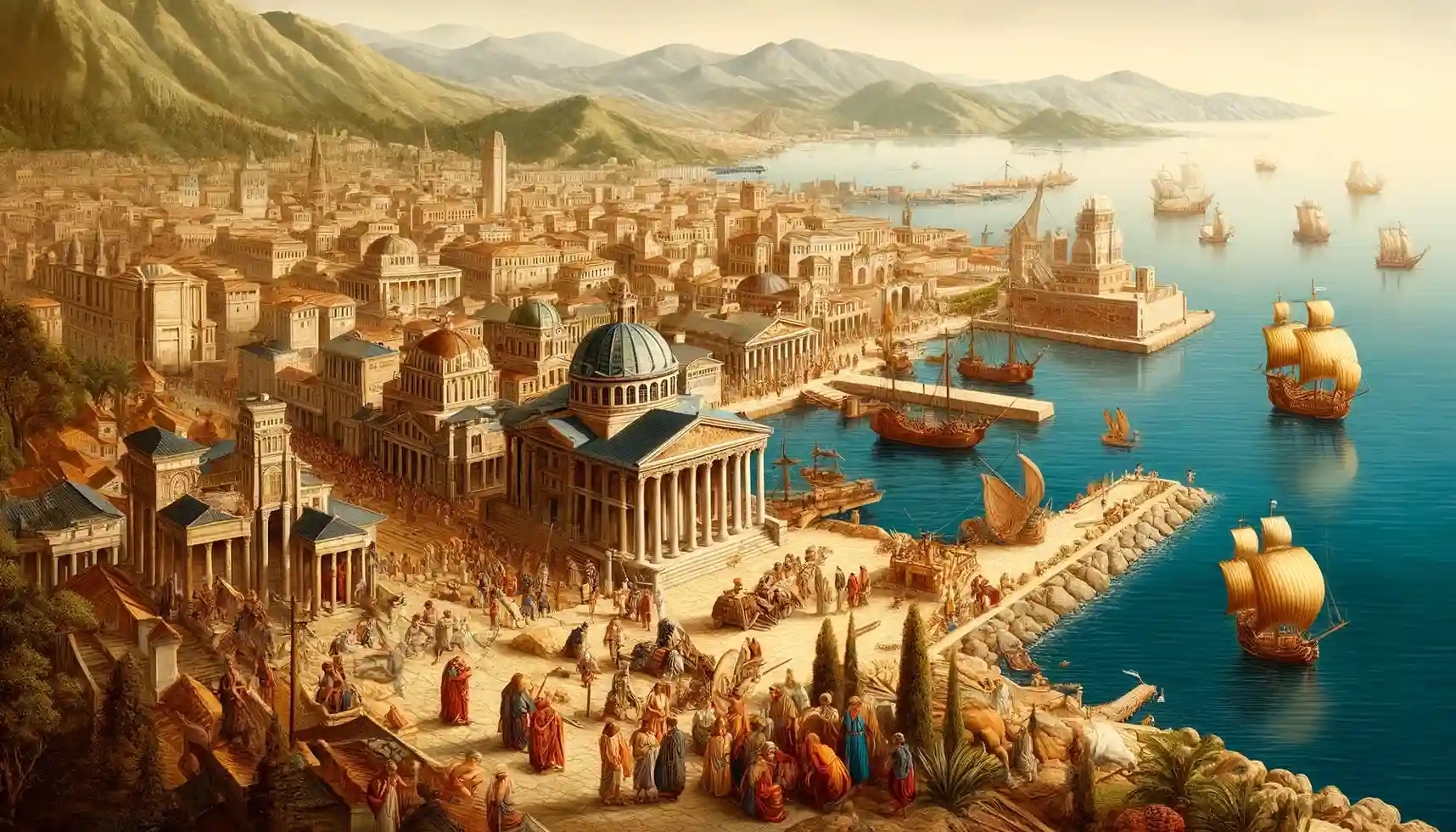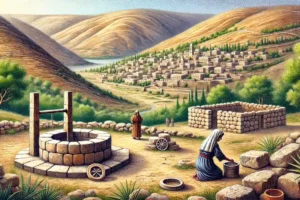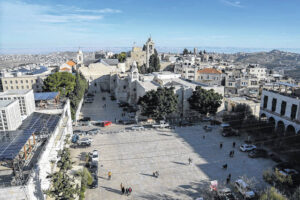
Thessalonica: An Ancient Hub of Culture and Christianity
Thessalonica (now Thessaloniki) was an ancient city located in Macedonia, northern Greece, and is significant in the New Testament for its early Christian community to whom the Apostle Paul wrote the Epistles of First and Second Thessalonians. Here are some quick facts about Thessalonica:
- Historical Significance: Thessalonica was founded around 315 BC by King Cassander of Macedon and named after his wife Thessalonike, sister of Alexander the Great.
- Strategic Location: The city was situated on the Thermaic Gulf at the northern edge of the Aegean Sea, making it a key harbor and trade center in the Roman Empire.
- Biblical Importance: Paul visited Thessalonica during his second missionary journey around AD 50-51, as described in Acts 17. His visit led to the founding of a Christian community which became one of the earliest churches in Europe.
- Cultural and Social Hub: As a major metropolitan city of the Roman province of Macedonia, Thessalonica was a melting pot of cultures, including Greek, Roman, and Jewish populations.
- Persecution and Challenges: The Christian community faced opposition and persecution from both the Jewish community and Roman authorities, which is reflected in Paul’s letters encouraging steadfast faith.
- Epistles to the Thessalonians: These letters are among the earliest Christian documents, written by Paul to address issues of the Christian life and eschatology, and to encourage the believers amid persecution.
- Modern Relevance: Thessaloniki remains one of Greece’s largest and most vibrant cities, with rich archaeological sites that testify to its historical and religious significance.
Thessalonica, now known as Thessaloniki, was a prominent ancient city located in Macedonia, northern Greece. Its historical, biblical, and cultural significance is profound, especially noted in the New Testament through the Apostle Paul’s Epistles of First and Second Thessalonians. Here’s a detailed analysis:
Historical Significance
Founding and Naming:
- Founded: Around 315 BC by King Cassander of Macedon.
- Name Origin: Named after Cassander’s wife, Thessalonike, who was the sister of Alexander the Great.
Strategic Location
Geographical Advantage:
- Situated: On the Thermaic Gulf at the northern edge of the Aegean Sea.
- Importance: This strategic location made Thessalonica a key harbor and trade center, pivotal in the Roman Empire for commerce and military logistics.
Biblical Importance
Apostle Paul’s Influence:
- Missionary Journey: Paul visited Thessalonica during his second missionary journey around AD 50-51.
- Acts 17: Describes Paul’s visit, preaching in the synagogue, and converting many to Christianity.
- Early Christian Community: His teachings led to the establishment of one of the earliest Christian churches in Europe.
Cultural and Social Hub
Diverse Population:
- Metropolitan City: As a major city in the Roman province of Macedonia, Thessalonica was a melting pot of cultures.
- Population: Included Greek, Roman, and Jewish communities, contributing to its rich cultural tapestry.
Persecution and Challenges
Opposition Faced:
- From Jews and Romans: The early Christian community encountered significant opposition from both the local Jewish population and Roman authorities.
- Paul’s Encouragement: This opposition is reflected in Paul’s letters, where he urges the Thessalonian believers to remain steadfast in their faith despite persecution.
Epistles to the Thessalonians
Significant Christian Documents:
- First and Second Thessalonians: Among the earliest Christian writings, these letters were written by Paul.
- Content: Address issues of Christian living, eschatology (the study of end times), and offer encouragement to maintain faith under duress.
Modern Relevance
Thessaloniki Today:
- Contemporary City: Thessaloniki remains one of Greece’s largest and most vibrant cities.
- Archaeological Sites: The city is rich with archaeological sites, including ancient forums, theaters, and remnants of early Christian churches, underscoring its historical and religious significance.
Summary
Thessalonica was a vital city in ancient Macedonia, known for its strategic importance, cultural diversity, and significant role in the early Christian church. The Apostle Paul’s letters to the Thessalonians highlight the challenges and faith of its early Christian community, making Thessaloniki a city of enduring historical and religious importance.
Tag:Acts 17, Ancient Greece, Apostle Paul, Archaeological sites, Biblical cities, Christian history, Cultural Diversity, Early Christianity, Epistles, First Thessalonians, King Cassander, Macedonia, New Testament, religious significance, Roman Empire, Second Thessalonians, Thessalonica, Thessalonike, Thessaloniki



